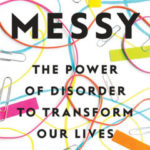Being a natural optimist has a lot of mental and physical benefits, but it may not be such a great trait in leaders, according to a recent article in Quartz at Work.
“The good thing about optimists is that they’re positive and hopeful, and you tend to need heavy doses of that in senior leadership because sometimes it can be difficult to even get out of bed in the morning and say, ‘I believe we can make this work,’” Liz Wiseman, CEO of leadership research and development firm Wiseman Group, told Quartz. “But what happens with optimists is they’re often so focused on what’s possible, and so convinced that the team is going to be able to make something work, that they don’t see the messy process of getting there.”
And that can backfire with direct reports. Wiseman, who wrote the book Multipliers: How the Best Leaders Make Everyone Smarter, shared with Quartz the story of how, when she was working as a manager on a complex project, a colleague asked her to stop saying, “How hard can it be? We can do this! This can’t be too hard!”
“This was my inner optimist talking,” Wiseman told Quartz. “I explained to him that I said that because I genuinely believe we can do this project, we can make this work, which I thought might be helpful or motivating,” she said. “But he said, ‘No, I need you to stop saying that because, Liz, what we’re doing is actually really hard, and as my manager I need you to acknowledge that.’ I wasn’t seeing the struggle, and when people don’t see you’re struggling it’s easy to say well then, why struggle at all?”
An additional hazard with being so hopeful things will work out? You can unintentionally eliminate the possibility that they may not. As the article points out, that can make employees afraid to take risks or make mistakes because their boss is so convinced of a project or initiative’s success.
FOCUS ON THE NEGATIVE
So Wiseman has learned to take an opposite tack. “I find that actually when I spend more time talking about how hard a project is, how it might not work, or we might not win this one, strangely my team goes, ‘Okay, we got this,’” Wiseman said.
Another strategy she takes is to ask more, and smarter questions. Her favorites: What problems do you see that I may be missing? Are there reasons we shouldn’t proceed? Where might our assumptions be wrong? “One of our deepest needs,” Wiseman told Quartz, “is to be understood and heard. I think we need that a lot more than we need motivation or positivity.”
Read the full story at convn.org/opt-leader.




